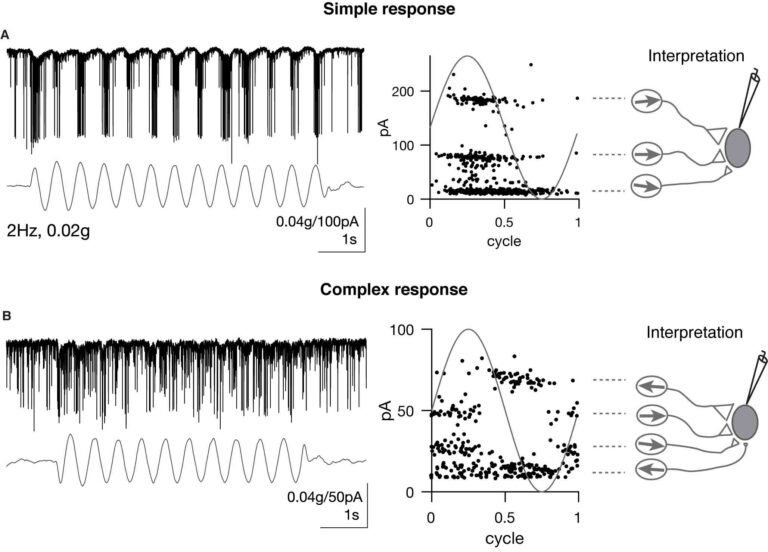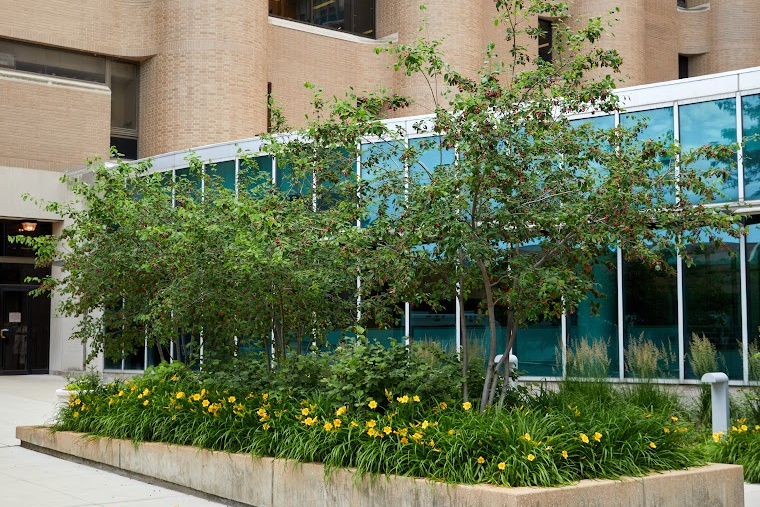Items
Bauernfeind Lab
Primate neuroanatomical & molecular variation
The Bauernfeind Lab is interested in how the biology of the brain underlies a species' particular cognitive specializations and behavioral repertoire. The lab's research program investigates neuroanatomical and molecular variation in primates to address questions of evolutionary significance, particularly with regard to the unique cognitive abilities of humans.
Bridgman Lab
Cell biology of developing nerves
The Bridgman Lab focuses on the basic cellular properties of developing nerve and muscle with emphasis on relating structure to function.
Burkhalter Lab
Anatomical, physiological & optogenetic study of the visual cortex
An important question is whether the mouse visual cortex is similar to that of primates and contains multiple modularly organized areas that are linked to distinct processing streams. If so, another important question is how these modules, areas and processing streams work together to create a unified representation of the world that can be flexibly changed by internal representations of the world to optimally guide behavioral goals. To investigate these questions the Burkhalter Lab is employing a combination of anatomical, physiological and optogenetic techniques.
Burton Lab
Cerebral cortex & sensory aberrations
Research in the Burton Lab explores possible reorganization in human cerebral cortex in the presence of sensory aberrations. Combined in these studies are functional brain imaging and behavioral assessments in individuals with some sensory deficit compared to age matched normal controls.
Cavalli Lab
Neural repair mechanisms
The primary goal of the Cavalli Lab is to unravel the molecular events that dictate the regenerative response of neurons in the peripheral nervous system and to relate this information to the lack of regenerative capacity in the central nervous system. The lab's proposed research has broad clinical impact, since axonal damage can occur in traumatic spinal cord injury, stroke, and many neurodegenerative diseases.

Central vestibular tuning arises from patterned convergence of otolith afferents
Liu, Z., Kimura, Y., Higashijima, S. I., Hildebrand, D. G. C., Morgan, J. L. & Bagnall, M. W., Nov 25 2020, In: Neuron. 108, 4, p. 748-762.e4
Chen Lab
Neuromodulation, sleep & learning
PI: Yao Chen, PhD
The Chen Lab attempts to fill the gap between molecular neuroscience and animal behavior by elucidating the spatial and temporal dynamics of biological signals, because their dynamics carry critical information that explain subsequent modifications of cells, circuits, and behavior. Specifically, the lab aims to understand how the dynamics of neuromodulators and intracellular signals contribute to the function of neuromodulators, to learning, and to the function of sleep.

Department seminar series
The department’s weekly seminar series invites speakers to give a one-hour talk, followed by a Q&A session with attendees. Most of these are hybrid in-person/virtual events.
Dikranian Lab
Neurodegeneration in the Central Nervous System
The Dikranian Lab studies neuronal and glial cell degeneration, traumatic brain injury and animal models of Alzheimer's disease, tauopathies and prion diseases.

Dr. Martha Bagnall’s tenure celebration
Congratulations to Martha Bagnall, PhD, who was promoted to Associate Professor with tenure!